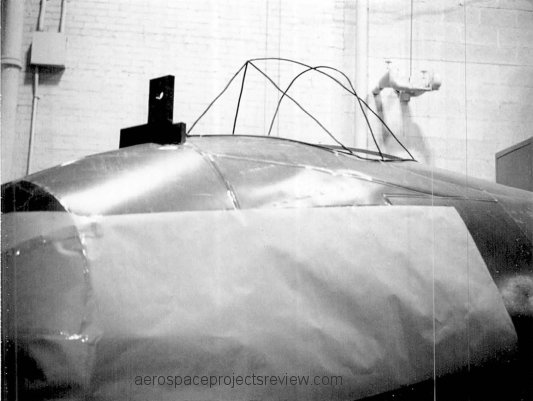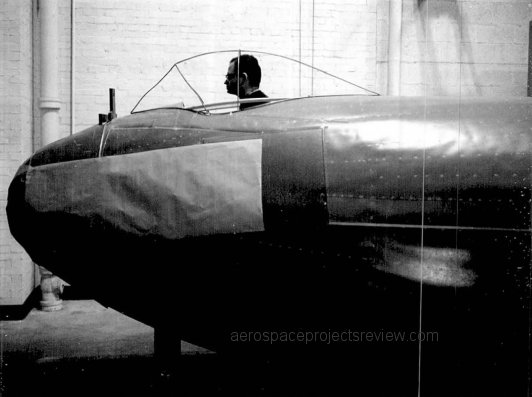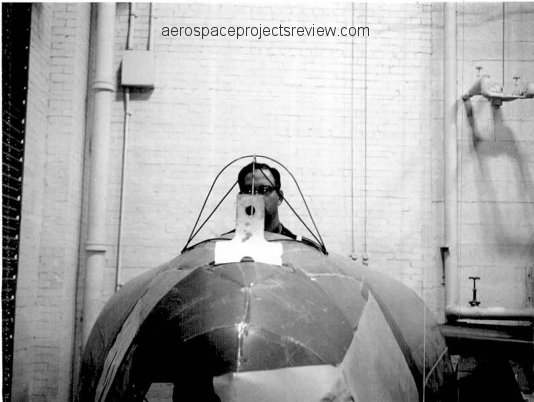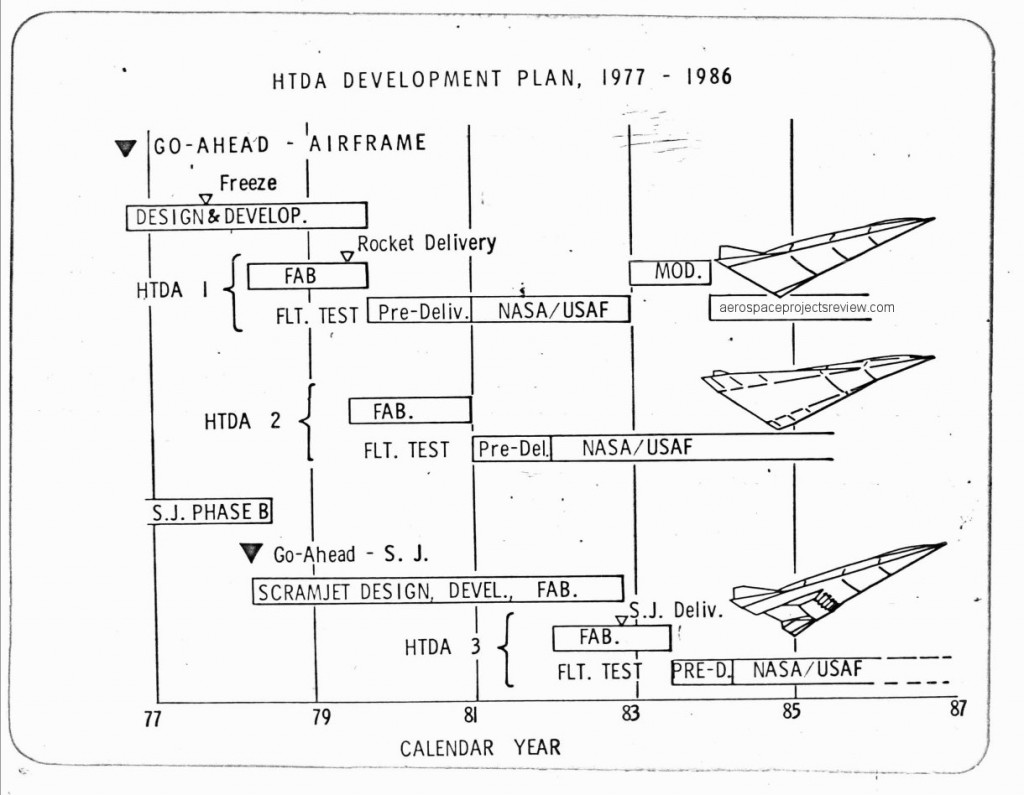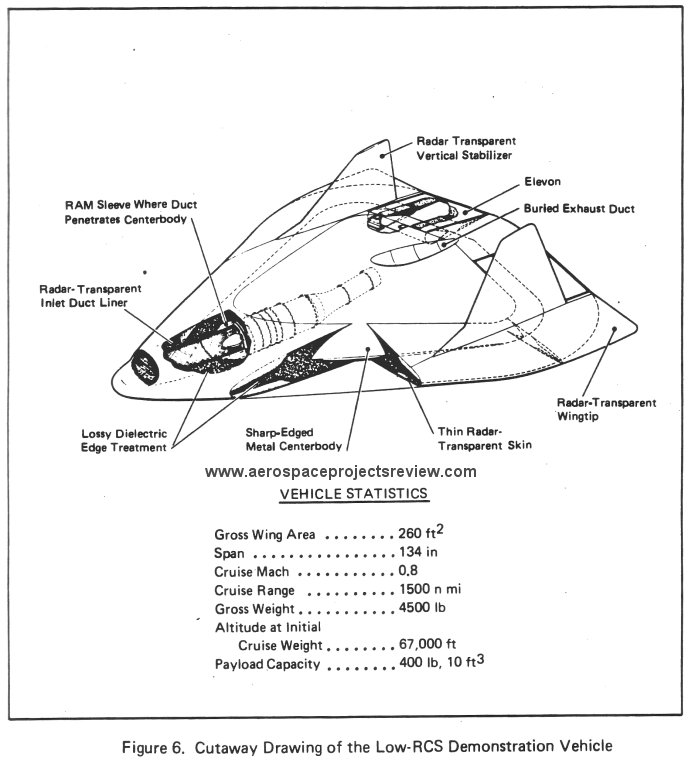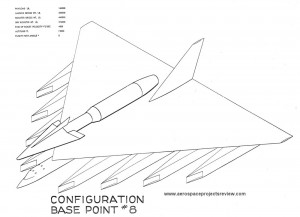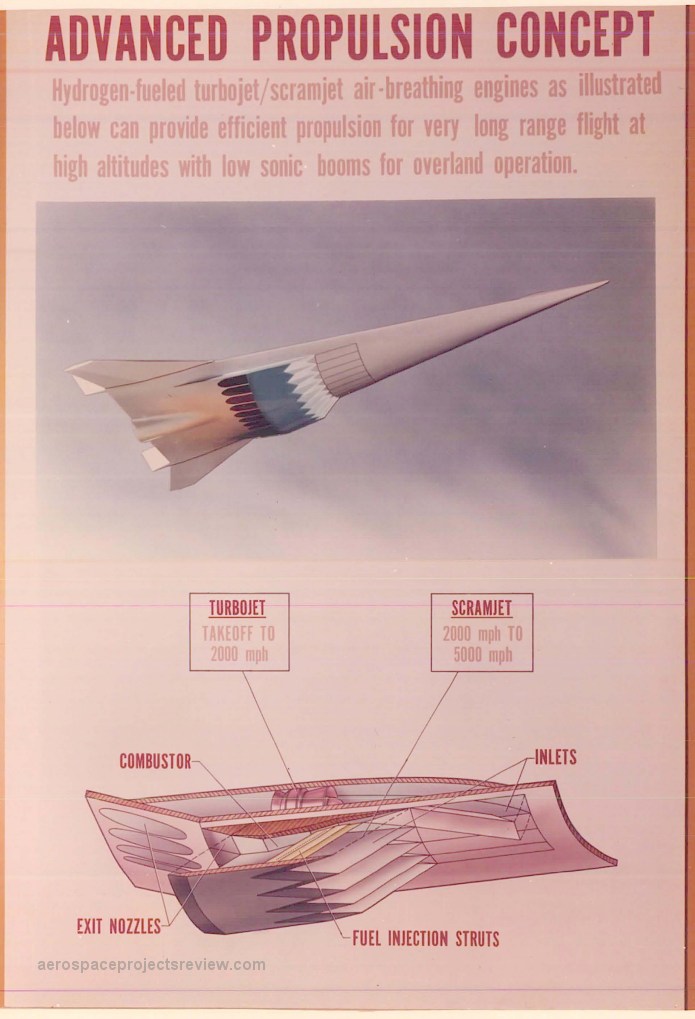Photos circa 1963-1964 show a full-scale NASA-Langley mockup of the forward nose section of the HL-10 lifting body shape. Incorporated into this was a framework showing a potential canopy configuration. This would clearly have been for a low-speed (non-orbital) test version, much like the HL-10 that was actually built.
Early to mid 1970’s NASA Langley photos of a hypersonic research aircraft configuration in a hypersonic wind tunnel, demonstrating the shock waves that would be generated at high speed.
This particular configuration was studied at some length. And while I seriously doubt that it led to an actual “Aurora,” I have little doubt that it inspire many in the journalistic and “conspiracy” communities, and became one of the stereotypical configurations depicted as “Aurora.”
A mid-1970’s graphic from the collection of a former NASA-Langley engineer shows the development schedule for “HTDA.” This I think stands for “Hypersonic Technology Development Aircraft,” and was to be a Mach 5+ airbreathing lifting body research plane that looks strikingly like the supposed “Aurora spyplane” that was so popular in the 1990’s. HTDA airframes 1 and 2 were most likely pure rocket vehicles, with a scramjet being integrated onto airframe 3.
Color me stunned.
Prototype Reusable Rocket Effort Felled by U.S. Budget Woes
Add it to the pile. The pile of reusable launch vehicles concepts that *could* have worked had they been fully funded but weren’t… and then the idea was discovered two years later and a whole new bag of money gets spent on studying what has already been studied. Rinse and repeat until generations of dreams and efforts are squandered.
A 1974 design by Teledyne Ryan for a stealthy remotely piloted vehicle While the general shape is certainly well within the norm for stealthy craft, the structure itself is quite different: it is basically a metal vehicle optimized for stealth, wrapped in a radar-transparent plastic skin optimized for aerodynamics. The only aspect of it that really seems to fail modern stealthy practices is the apparent straight shot in to the turbine face. From the Jay Miller collection.
The technology behind this was patented by Teledyne Ryan:
Aircraft of low observability
CORRECTION: This was originally posted as a TRW design, when in fact it was a Teledyne Ryan design. D’oh.
A 1959 Boeing concept for an airbreathing HTOL booster for Dyna Soar. Compared to the other pure-rocket VTO boosters, this would have been a monster… far bigger, far heavier, far, far more expensive. Which almost certainly explains why not only did such a booster not get serious study further down the line for Dyna Soar, it didn’t even rate detailed diagrams in the reports.
Staging would have been an interesting show.
NOTE: The isometric artwork for baseline concepts 4-7? Not available, sadly.
A piece of NASA-Langley artwork describing the future of aeropropulsion… the scramjet engine. The provenance on the art is hazy at best… found in the uncatalogued collection of a former Langley engineer, it probably dates to the mid 1960’s. The aircraft illustrated here has been seen from the early 1960s up into the late 1980s, so that at best brackets the art. The aircraft has been used as a hypersonic transport and as the first stage of a space launch system. As shown here, the model used was *probably* a wind tunnel model repainted and repurposed as a display model… none of the diagrams I’ve seen of it have included the “hump” on the underside of the aft expansion ramp. Most likely that’s the connection point for the support “sting” for tunnel use. Alternatively, it *could* represent a fairing for a rather sizable rocket engine, though that seems unlikely… during scramjet operation the hump would not only mess with exhaust flowfields, it would also be subjected toa whole lot of thermal unpleasantness.
HAs anyone every seen anything more on this 1947 supersonic transport concept, published in Life magazine? Many years ago I saw either the same painting, or a very similar one, reproduced in a NACA report that basically just *mentioned* the aircraft and gave the impression that it was one of their ideas, but I’ve never seen anything firm about who designed it. NACA? Lockheed? Boeing? Life magazine itself? Some university?
Any pointers appreciated.
